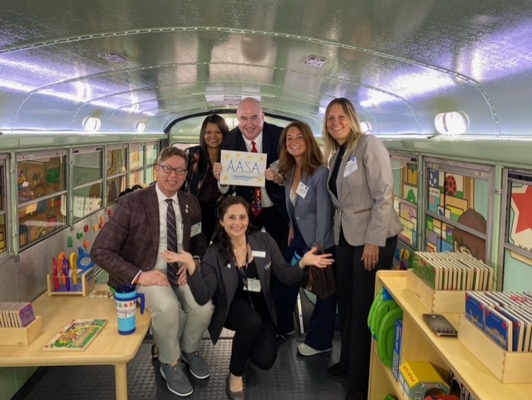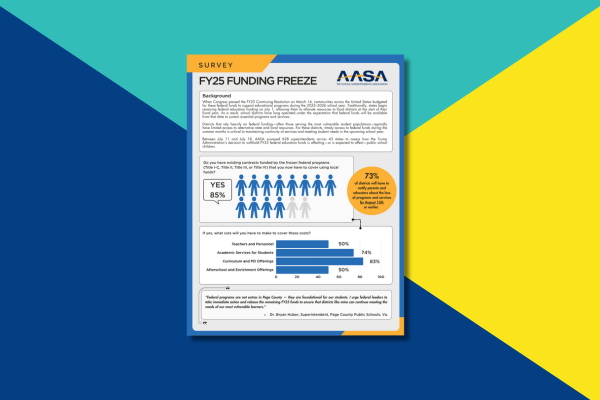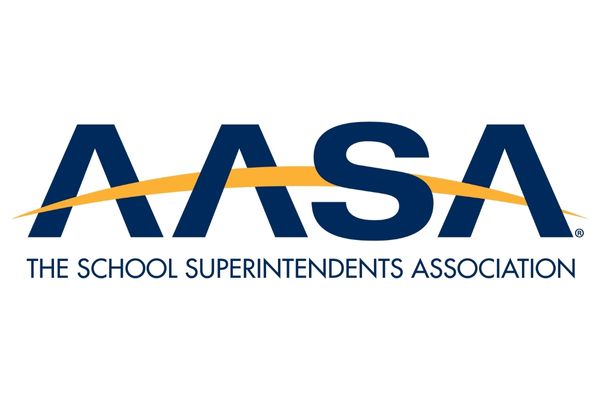Gwinnett County Schools: An Oasis of Early Learning Actionable Practices
April 16, 2024
Why is early learning important? “A child’s early years lay the foundation for all that is to come.” That statement is proudly posted on the website of Gwinnett County Public Schools (GCPS), a community located about 30 minutes northeast of Atlanta.
With an estimated enrollment of 182,000 students, GCPS is the largest school district in Georgia and administers a robust early learning and school readiness program that is laying the groundwork to align developmental and academic standards for the community’s young children.
Policies and procedures aimed to improve outcomes for children from birth to five make up an integral part of the district’s Blueprint for the Future. Backed by its strategic priorities—empathy, equity, effectiveness and excellence—the district’s five-year plan outlines transformational work underway to create a future-driven culture shift to prepare each student to reach their full potential. A major goal of the blueprint is to increase student engagement in high-quality, relevant curriculum and advanced coursework.
“One of the eight objectives aligned to this goal calls out for the importance of early learning,” said Calvin Watts, superintendent, GCPS, during his welcoming remarks at the AASA 2024 Early Learning Cohort spring meeting.
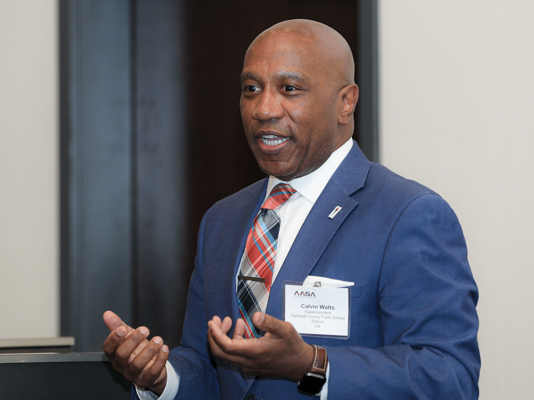
“The importance of early learning cannot be understated,” said Watts who has served as district chief for since July 2021. “Research overwhelmingly demonstrates that the first few years of a child’s life are pivotal in shaping their future success.”
Play: A Universal Language
To promote school readiness, GCPS offers a Play 2 Learn program that encourages learning through play. At the outset of the first full day of the cohort meeting, visiting superintendents and other administrators stopped at Nesbit and McKendree Elementary Schools to view this strategy firsthand.
During the school year, students, parents and other care givers come together in a pre-school environment each week. This experience empowers families to keep learning going at home to meet developmental needs of children.
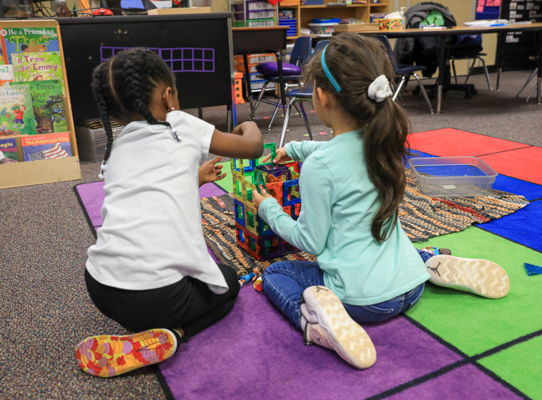
“One of the key components is having principals who are willing embrace having our tiniest learners in the building. It helps us support the district’s (early learning) initiative,” said Tyese Scott, principal, McKendree Elementary School.
Joyful Learning, another critical aspect of the district’s early learning strategy, provides students and teachers with opportunities to interact through purposeful play during morning times. This program fosters collaboration, language development, critical thinking and problem solving. Students engage in high-quality resources, free choice and play to enhance their social and emotional skills as well as problem-solving abilities.
“It’s great to be able to talk about the research in theory and then see it in practice,” said Peter Finch, superintendent, West Valley (Wash.) School District #208; lead superintendent of the AASA Early Learning Cohort. “We keep our work grounded in the classroom and the student experience. We got to see it here in Gwinnett County. To see it in practice is invaluable.”
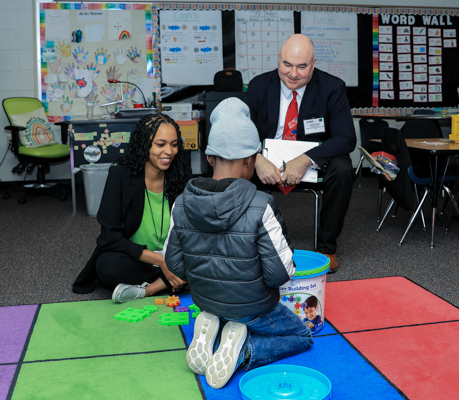
“It’s been an amazing event. I truly enjoyed the early learning in action at Gwinnett County Schools,” said Viki Dennard, coordinator for early learning, Clayton County (Ga.) Public Schools. “Seeing parents working with their scholars with teachers supervising and getting them ready for kindergarten was impactful for me.”
Following school visits, cohort attendees toured the “Expo Suite of Early Learning,” created by the district’s Instructional Support Center,
featuring an array of options and instructional tools available for schools to scale up their early learning practices. The tour concluded with a walk through the “Play 2 Learn On The Go,” a bus filled with activities and other resources
to benefit young learners.
“Our strategic priorities are intricately woven with the fabric of early learning,” said Watts. “From closing the achievement gap to fostering a culture of inclusivity and innovation, every initiative we undertake is grounded in the belief that early intervention for students of all ages is key to ensuring every student thrives.”
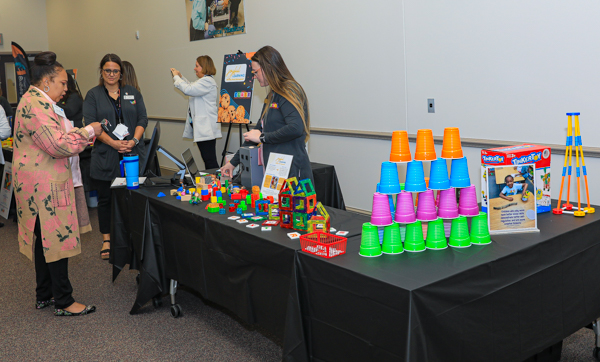
Instructional strategies coordinated by teachers through the Play 2 Learn program include:
- Engaging with students; having meaningful conversations about learning and materials;
- Working with students on their physical level (i.e. sitting at the table, sitting on the floor, bending down to talk to a child);
- Coaching parents on best practices for working with their child during each portion of the Play 2 Learn class;
- Modeling the types of questions to ask their child during play and explaining how to extend the learning at home, etc.);
- Asking open-ended questions
“It was so important to be here. I wanted to see places where early learning was happening with intentionality and see the positive outcomes that are happening,” said Anna Stubblefield, superintendent, Kansas City (Kan.) Public Schools. “I was pleasantly surprised around the focus on play. It was said during our visit that ‘play is a universal language.’ We have over 70 languages spoken in our district. I witnessed students interacting and practicing language skills that seemed natural for them. I could see students learning from each other which was very powerful.”
“As school leaders, we need to be lifelong learners ourselves,” added Finch. “Being a part of the AASA Early Learning Cohort has helped me in my learning. I’ve been able to take that learning into my district. It’s been an
amazing experience being a part of this cohort.”
To find out more about Early Learning programs and policies at Gwinnett County Public Schools, contact Kim Holland, executive director of Early Learning and School Readiness, at kim.f.holland@gcpsk.12.org.
About the AASA Early Learning Cohort:
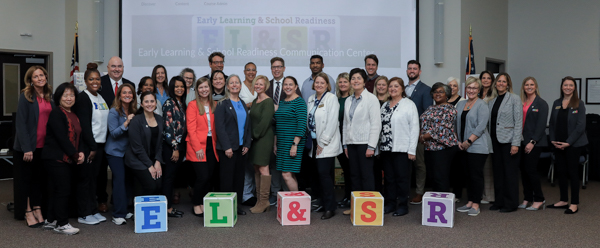
Participants in the AASA Early Learning Cohort engage in meaningful dialogue with their peers throughout the year in an effort to discover innovative solutions and review emerging research to facilitate positive change in the nation’s schools.
In 2022, the AASA Early Learning Cohort released a first-of-its-kind toolkit aimed at supporting all providers of early learning, especially school districts, as they embrace the significant responsibility of providing early childhood education. The Early Childhood and Learning Toolkit is a resource offering actionable practices that provide educators with a gateway to explore and define ways to make a positive difference in the lives of the nation’s 50 million public school children and their families.
To learn more, visit the AASA Early Learning Cohort webpage. Superintendents and other school system leaders can also contact Mort Sherman, AASA senior associate executive director, Leadership Network, at msherman@aasa.org, or Debbie Magee, AASA program director, at dmagee@aasa.org.
